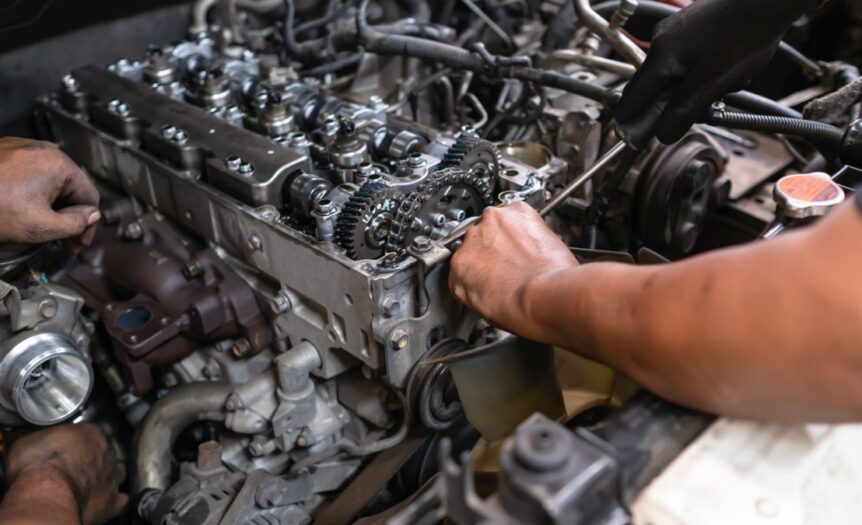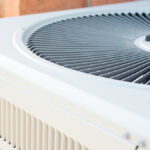Diesel engines have a well-deserved reputation for being tough and durable. Even so, they may experience occasional problems. Whether you use it for work or pleasure, you want to keep your diesel-powered vehicle in top condition so that it delivers the performance you require. With the right tools and know-how, you can keep your diesel engine running in peak condition. Here’s the ultimate diesel engine troubleshooting checklist. Learn how to identify and solve common diesel engine challenges.
Check the Fuel System
The fuel system is always a good place to start with most issues, including hard starts, no starts, and general driving performance issues. Diagnose the problem through the following steps:
- Confirm there’s enough fuel in the tank. This simple oversight could lead to engine failure.
- Dirt or water in the fuel can clog filters and damage the system, so replace clogged filters immediately. Consider fuel additives to eliminate or combat contaminants.
- Broken and blocked fuel lines disrupt the flow of fuel. Look for leaks or damage in the line!
Inspect the Exhaust System
The exhaust system has many functions and greatly contributes to your vehicle’s performance, so be sure it’s in good shape. When troubleshooting, check for blockages. Soot buildup and debris cause restrictions in the exhaust flow. Next, assess engine power loss. Poor performance could indicate that the engine isn’t getting enough air. Upgrade the exhaust system to provide more airflow to the engine and prevent power drops.
Examine the Electrical System
Every vehicle relies on its electrical system, and diesel engines are no exception. Common problems include the following:
Battery Issues
When did you last test your vehicle’s battery? Dead or weak batteries hinder engine starts. Use a multimeter to measure battery voltage. Naturally, if the battery is old and can’t keep a charge, switch to a new one.
Test the Starter
Faulty starter motors prevent ignition. Listen for clicks or grinding noises during start attempts; if you hear them regularly, you may need to install a new starter.
Glow Plug Performance
A classic problem with many old diesel engines is poor glow plug performance. Faulty glow plugs make cold starts challenging. Replace them if they fail to generate enough heat for quick starts.
Evaluate the Cooling System
Overheating is the bane of every kind of engine. Diesels run hotter than gas-powered models, so your truck’s coolant system is already facing a lot of heat. Check the following:
To start, low coolant inevitably leads to overheating. Refill or top it off, if necessary, and look beneath the radiator for leaks. Speaking of leaks, make sure your radiator remains a self-contained and leak-proof system. Clogged or broken radiators have a devastating effect on engines. Clear debris, have the radiator bled and flushed, and seek repairs or replacement if necessary. Finally, make sure the thermostat is telling no lies. Malfunctions disrupt coolant flow, leading to temperature spikes.
Keep this ultimate diesel engine troubleshooting checklist in your glove compartment so that you have it the next time your engine starts to “complain” and bring it back up to snuff!










 Deering Estate
Deering Estate
 Massage Envy South Miami
Massage Envy South Miami
 Calla Blow Dry
Calla Blow Dry
 My Derma Clinic
My Derma Clinic
 Sushi Maki
Sushi Maki
 Sports Grill
Sports Grill
 The Healthy Kitchen
The Healthy Kitchen
 Golden Rule Seafood
Golden Rule Seafood
 Malanga Cuban Café
Malanga Cuban Café

 Kathleen Ballard
Kathleen Ballard
 Panter, Panter & Sampedro
Panter, Panter & Sampedro
 Vintage Liquors
Vintage Liquors
 The Dog from Ipanema
The Dog from Ipanema
 Rubinstein Family Chiropractic
Rubinstein Family Chiropractic
 Your Pet’s Best
Your Pet’s Best
 Indigo Republic
Indigo Republic




 ATR Luxury Homes
ATR Luxury Homes


 2112 Design Studio
2112 Design Studio
 Hamilton Fox & Company
Hamilton Fox & Company
 Creative Design Services
Creative Design Services
 Best Pest Professionals
Best Pest Professionals
 HD Tree Services
HD Tree Services
 Trinity Air Conditioning Company
Trinity Air Conditioning Company
 Cisca Construction & Development
Cisca Construction & Development
 Mosquito Joe
Mosquito Joe
 Cutler Bay Solar Solutions
Cutler Bay Solar Solutions


 Miami Royal Ballet & Dance
Miami Royal Ballet & Dance
 Christopher Columbus
Christopher Columbus
 Pineview Preschools
Pineview Preschools
 Westminster
Westminster
 Carrollton
Carrollton
 Lil’ Jungle
Lil’ Jungle
 Frost Science Museum
Frost Science Museum
 Palmer Trinity School
Palmer Trinity School
 South Florida Music
South Florida Music
 Pinecrest Orthodontics
Pinecrest Orthodontics
 Dr. Bob Pediatric Dentist
Dr. Bob Pediatric Dentist
 d.pediatrics
d.pediatrics
 South Miami Women’s Health
South Miami Women’s Health

 The Spot Barbershop
The Spot Barbershop
 My Derma Clinic
My Derma Clinic




 Miami Dance Project
Miami Dance Project

 Rubinstein Family Chiropractic
Rubinstein Family Chiropractic
 Indigo Republic
Indigo Republic

 Safes Universe
Safes Universe
 Vintage Liquors
Vintage Liquors
 Evenings Delight
Evenings Delight





 Atchana’s Homegrown Thai
Atchana’s Homegrown Thai
 Baptist Health South Florida
Baptist Health South Florida

 Laser Eye Center of Miami
Laser Eye Center of Miami
 Visiting Angels
Visiting Angels
 OpusCare of South Florida
OpusCare of South Florida

 Your Pet’s Best
Your Pet’s Best





 HD Tree Services
HD Tree Services
 Hamilton Fox & Company
Hamilton Fox & Company


 Creative Design Services
Creative Design Services